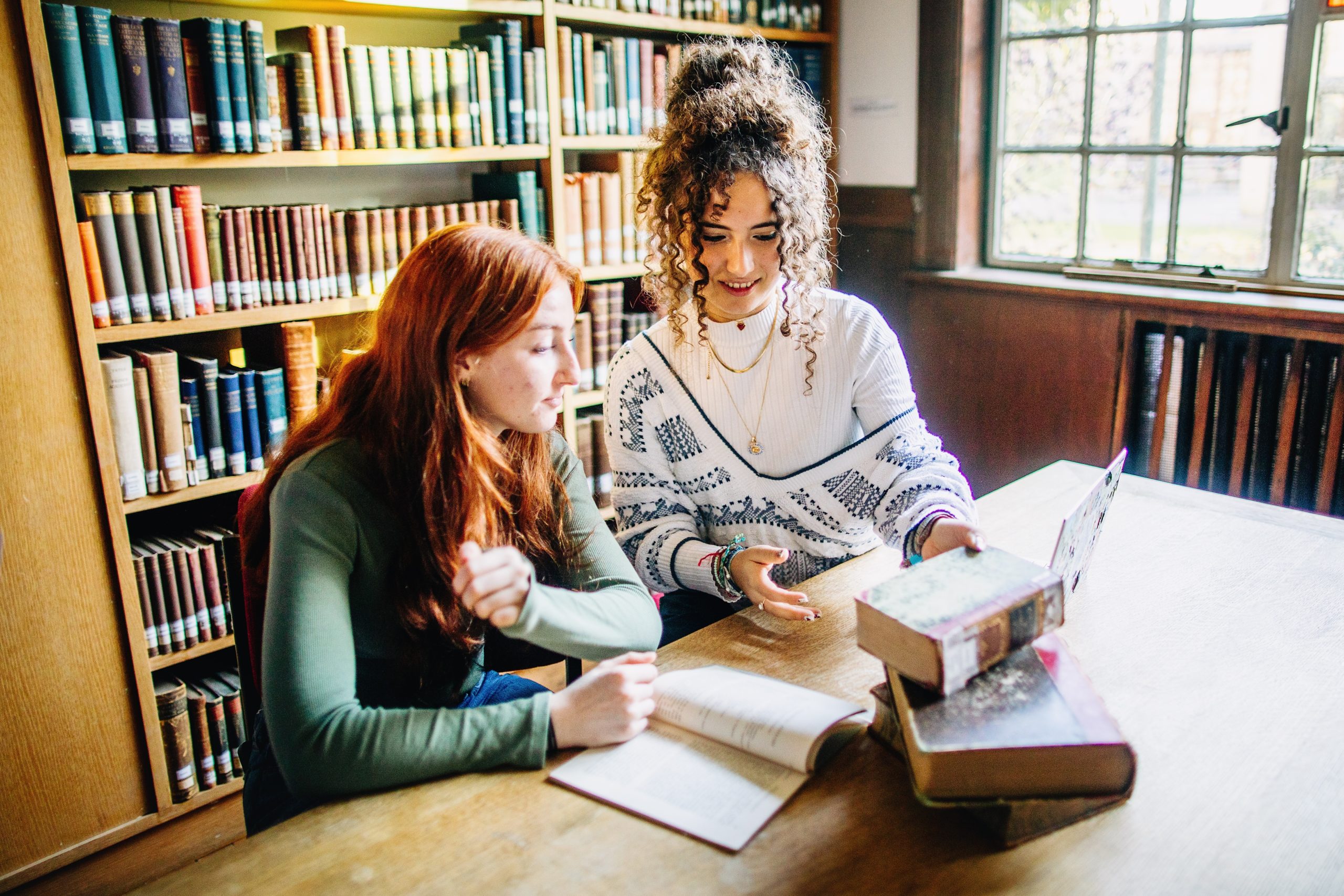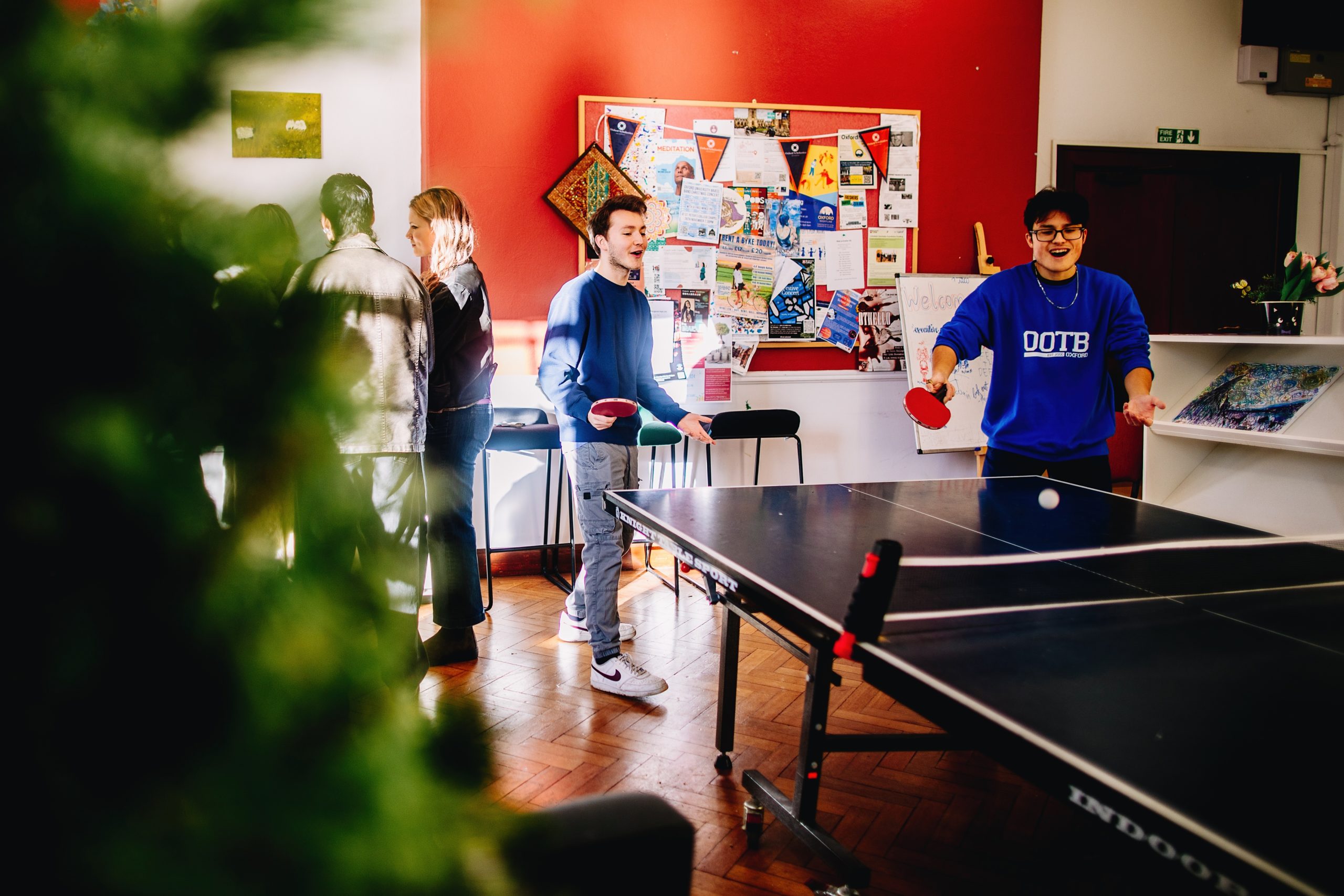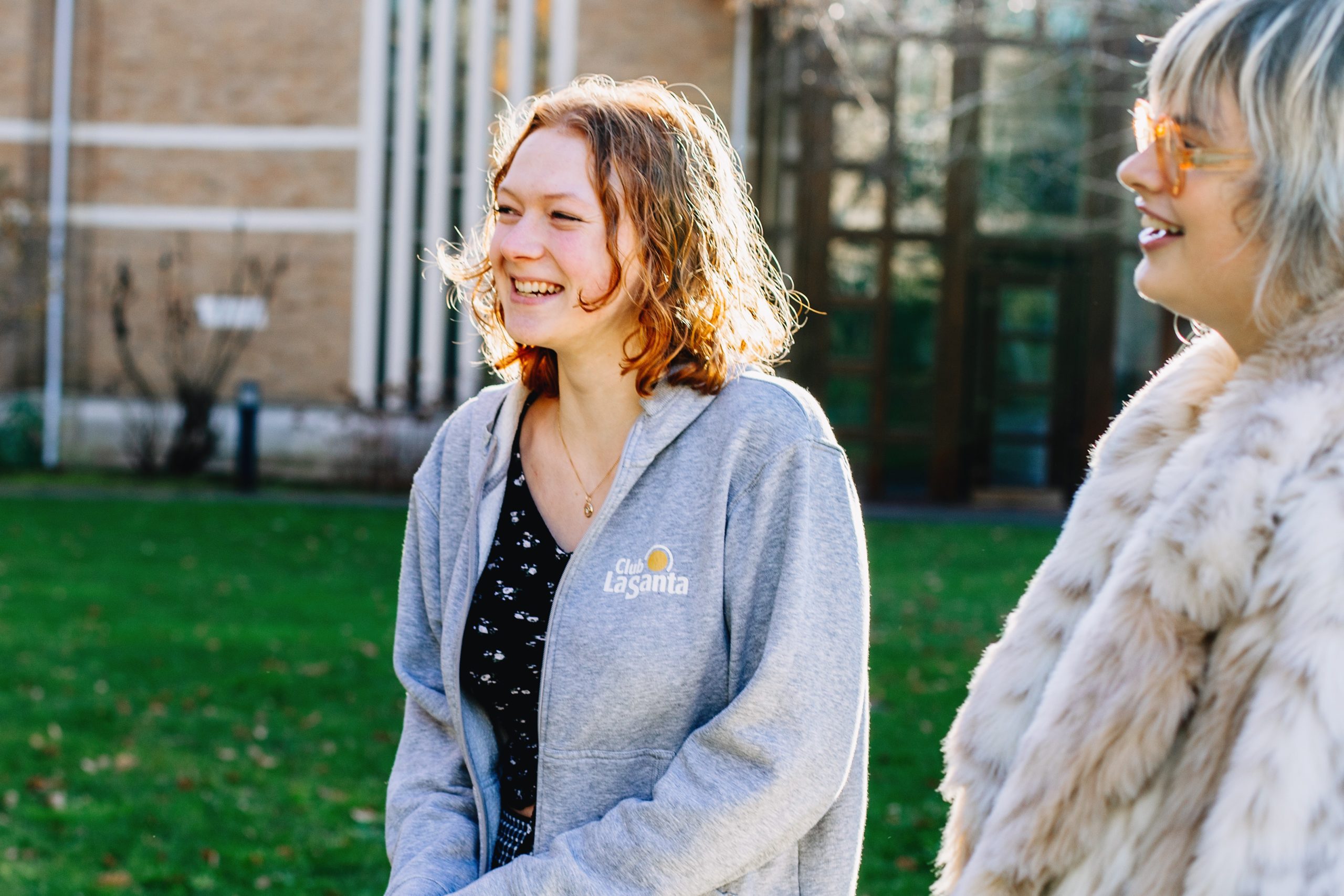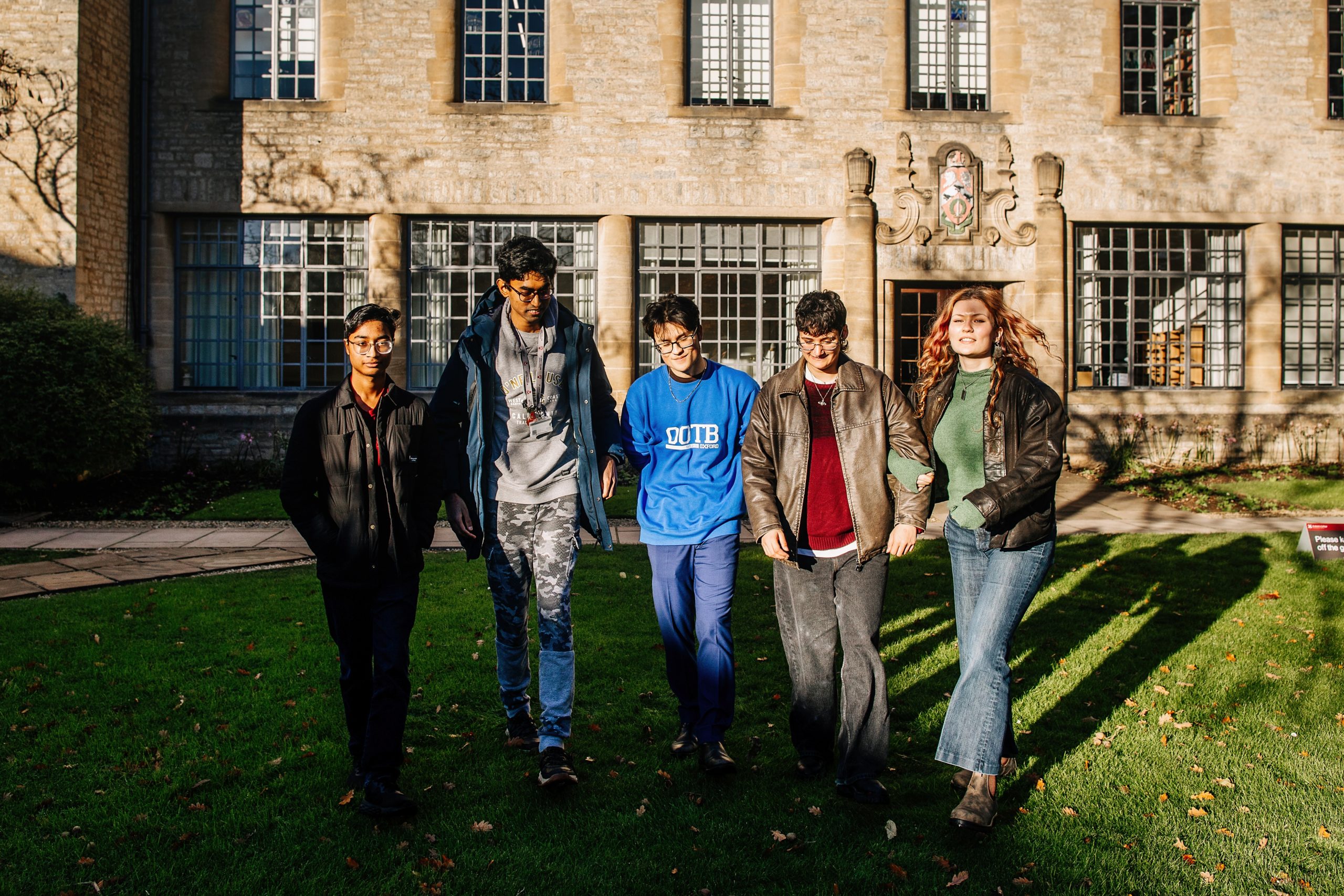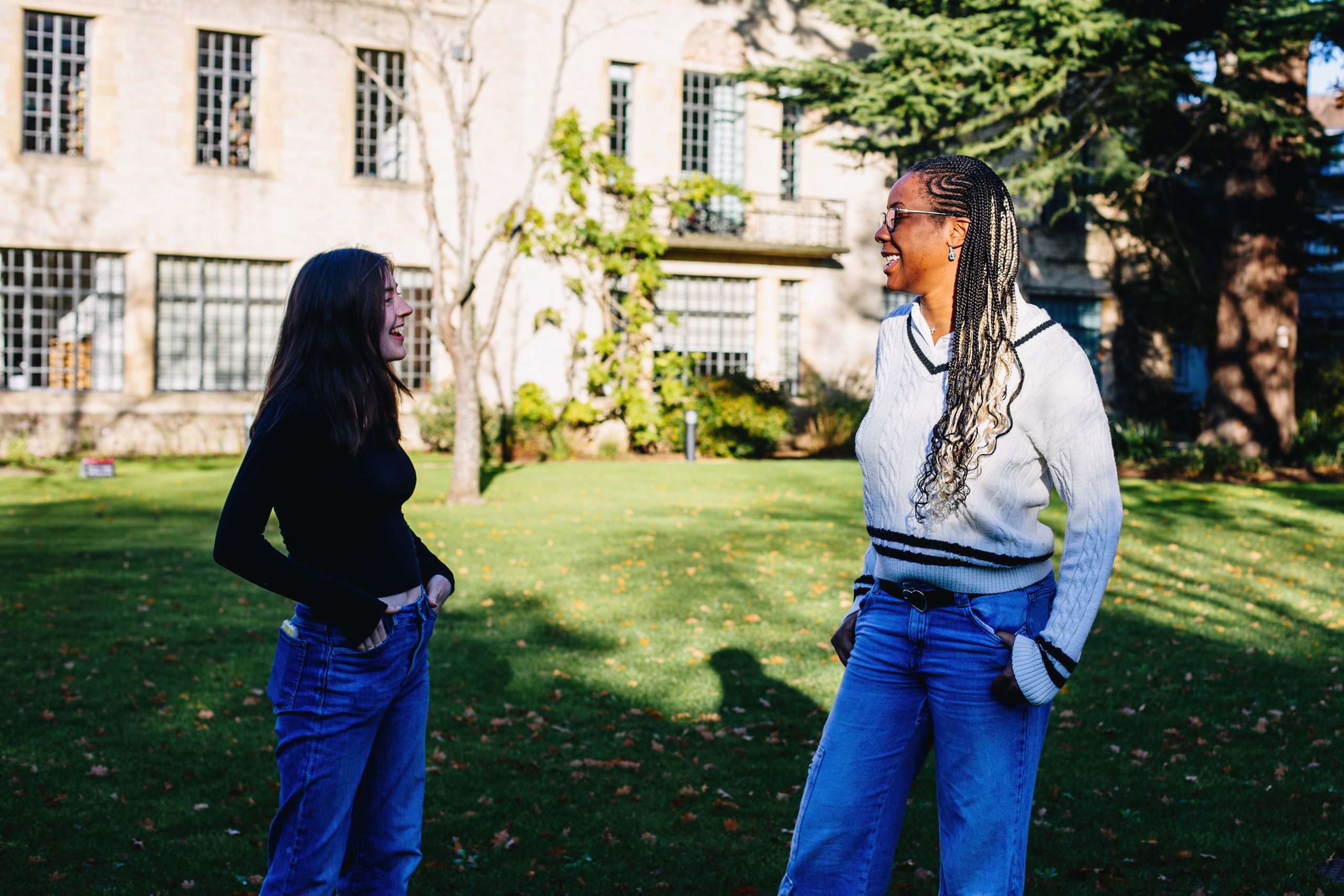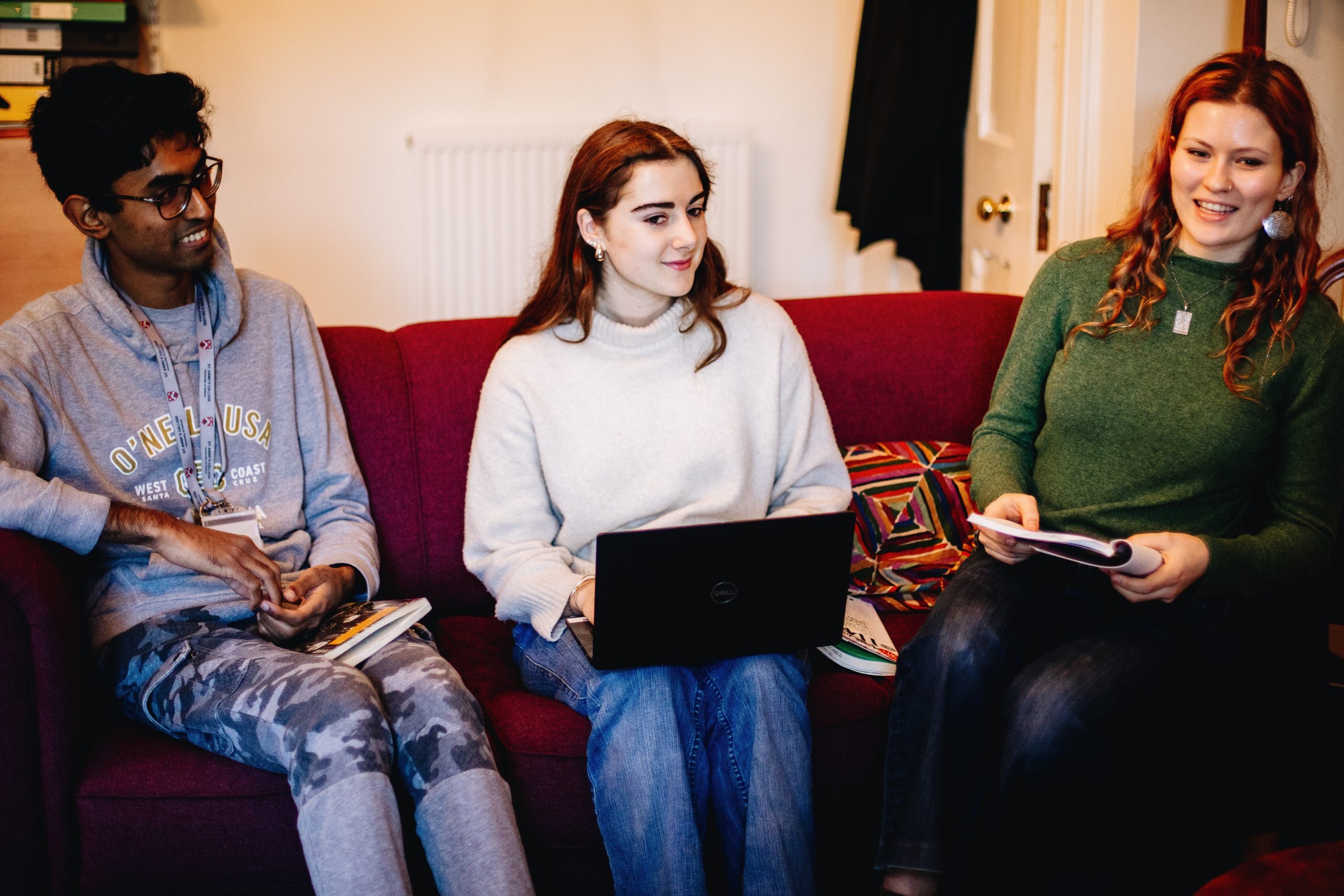Who gets invited to interview?
Tutors shortlist the candidates they feel have the strongest potential and meet their selection criteria the best. Interviews will take place after shortlisting and, as such, only candidates who have been shortlisted will be invited to interview.
Students will receive an email inviting them to interview, usually in mid-to-late November.
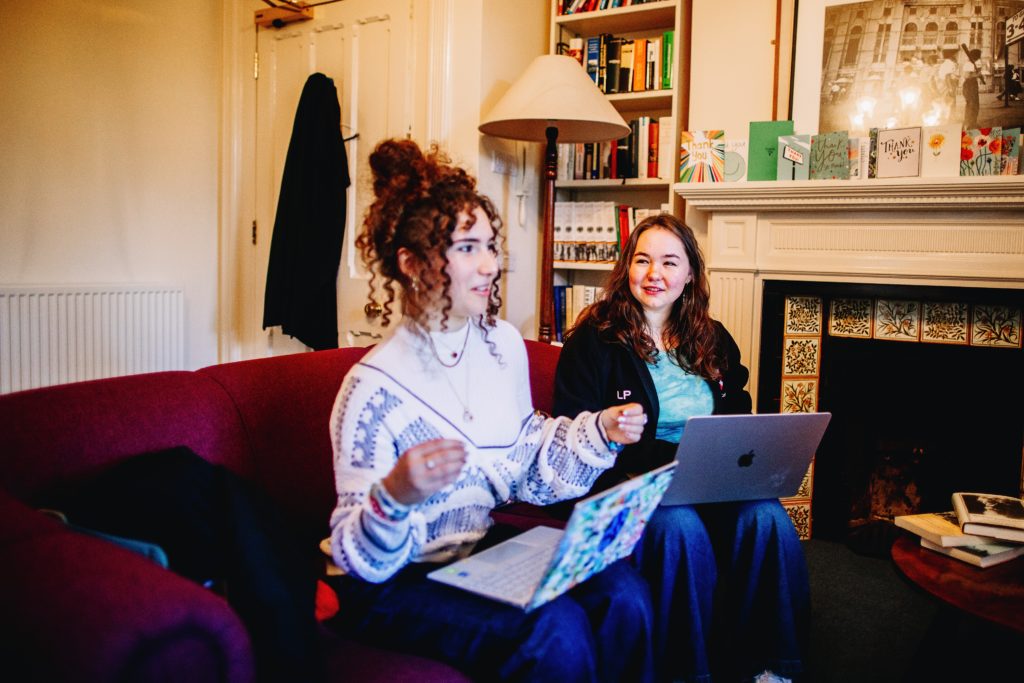
Format and Tech
All interviews will take place online, using Microsoft Teams. You are likely to be interviewed with more than one College.
You can take the interview in a setting that suits you. Most students interview from their home or their school. An interview is usually with two college tutors and will typically last around thirty minutes. Our interviews are meant to simulate a tutorial, and will be focused on academic discussion with questions to challenge your existing knowledge and present you with new material.
Some subjects will ask you to use a Miro Virtual Whiteboard, and some subjects may ask you to use a stylus to capture your handwriting in order to answer problems in the interview.
For more information please see: Interviews | University of Oxford
How to Prepare
Know your personal statement and any written work you have submitted. Make sure you re-read any material that you have provided, and that you are able to answer questions relating to your personal statement.
Keep reading and exploring your subject, and your interests. Your ability to explore, understand and provide critical commentary on your area of study will be tested in the interview.
Practise talking about your subject with your friends, family, teachers, etc. It can feel weird to be talking so intensely about your subject, so make sure you are practised at doing so.
Watch Oxford and Cambridge’s demonstration interviews that are online.
Try out Microsoft Teams in advance, and check that you have a working microphone and camera before the interview.
If your school or education provider is offering a mock interview, then take advantage of this. If they aren’t, ask a teacher if they can organise one for you.
Don’t worry if you don’t know the answer immediately – interviews are designed to test you. Prepare for experiencing the ‘I don’t know moment’ by asking your friends to ask you difficult questions. How do you approach something you don’t know? Can you explain what you are thinking using reflective language? E.g. “I would start by”, “one way to think about this would be”, etc.
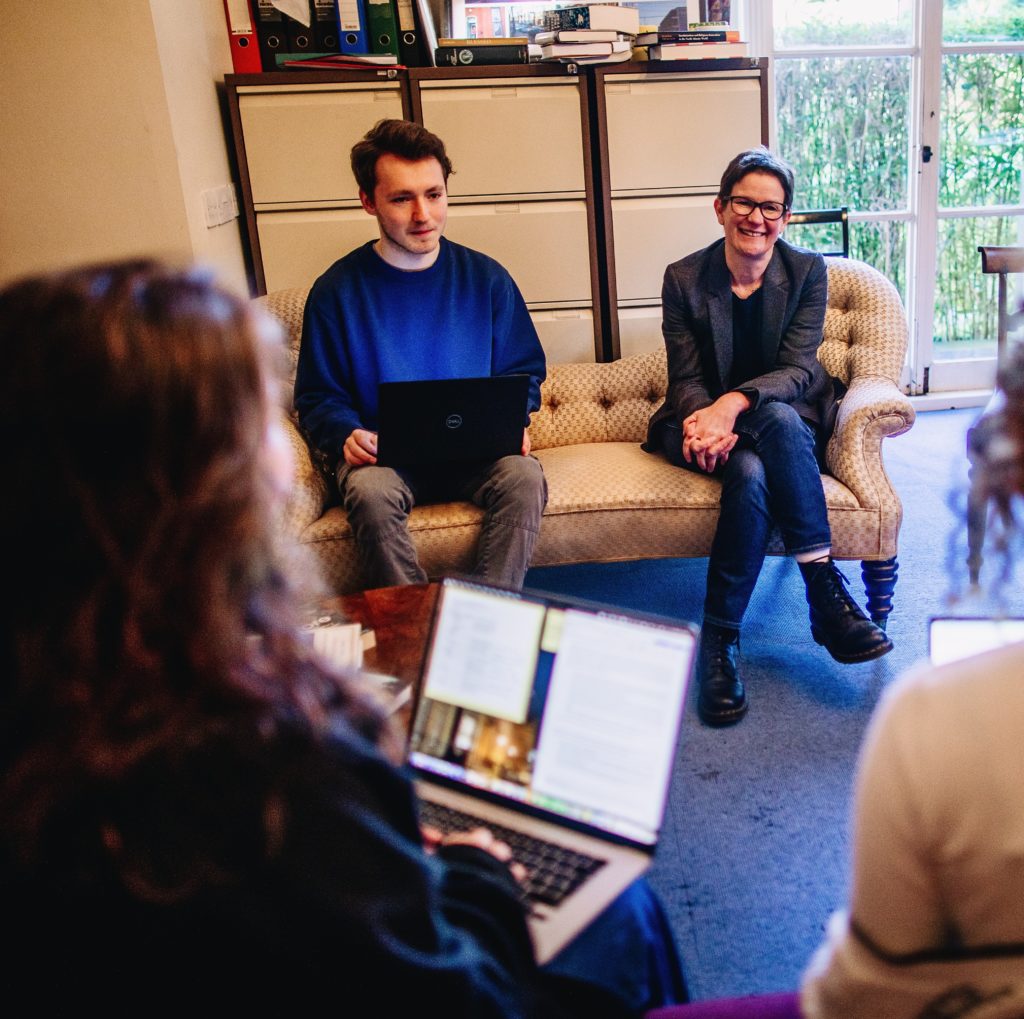
What Could You Be Asked?
Some subjects may start with an ice breaker question such as ‘why do you want to study your subject?’
Some subjects may ask you a question about your personal statement, e.g. what did you think of x book/documentary/podcast?
If your subject is likely to be related to current events (e.g. politics) then you may be asked about these. It is good practise to maintain a general awareness of current affairs/politics.
Some subjects may provide you with unseen material either before the interview, or during the interview.
The majority of STEM subjects (and particularly Maths, Physics, Computer Science) will structure the interview around a series of problem questions that you will be expected to work through, and may not even start with icebreaker questions!
